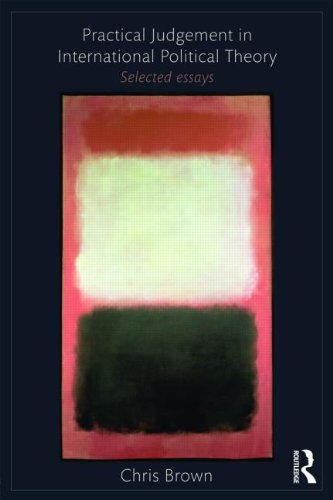

Most ebook files are in PDF format, so you can easily read them using various software such as Foxit Reader or directly on the Google Chrome browser.
Some ebook files are released by publishers in other formats such as .awz, .mobi, .epub, .fb2, etc. You may need to install specific software to read these formats on mobile/PC, such as Calibre.
Please read the tutorial at this link: https://ebookbell.com/faq
We offer FREE conversion to the popular formats you request; however, this may take some time. Therefore, right after payment, please email us, and we will try to provide the service as quickly as possible.
For some exceptional file formats or broken links (if any), please refrain from opening any disputes. Instead, email us first, and we will try to assist within a maximum of 6 hours.
EbookBell Team

0.0
0 reviewsChris Brown is a prominent international political theorist who has contributed to debates on pluralism, justice and human rights. This book draws together seventeen of his most important and influential articles from the last twenty years.
These essays include influential statements on the role of normative theory and international ethics, the so-called ‘cosmopolitan-communitarian debate’ and anti-foundationalist thought in international relations, as well as important contributions to Rawlsian and Post-Rawlsian theories of international and global justice. The most recent papers address subjects such as the notion of global civil society, and controversies over the ethics of pre-emptive warfare, and the inevitably selective nature of humanitarian interventions.
The book includes a framing introduction written for this volume, in which Brown discusses his own influences, and the evolution of his thinking throughout his career. Although this evolution has involved a progressively less critical viewpoint towards liberal thought and liberal internationalism, and a greater commitment to universal values, some things have remained constant – in particular a focus on the importance of political judgement and scepticism directed towards the idea that there are simple solutions to complex problems. The collection ends fittingly with a critique of the popular cosmopolitanism of figures such as Bono and Bob Geldof.
This collection will be essential reading for all scholars and graduates with an interest in international political theory.